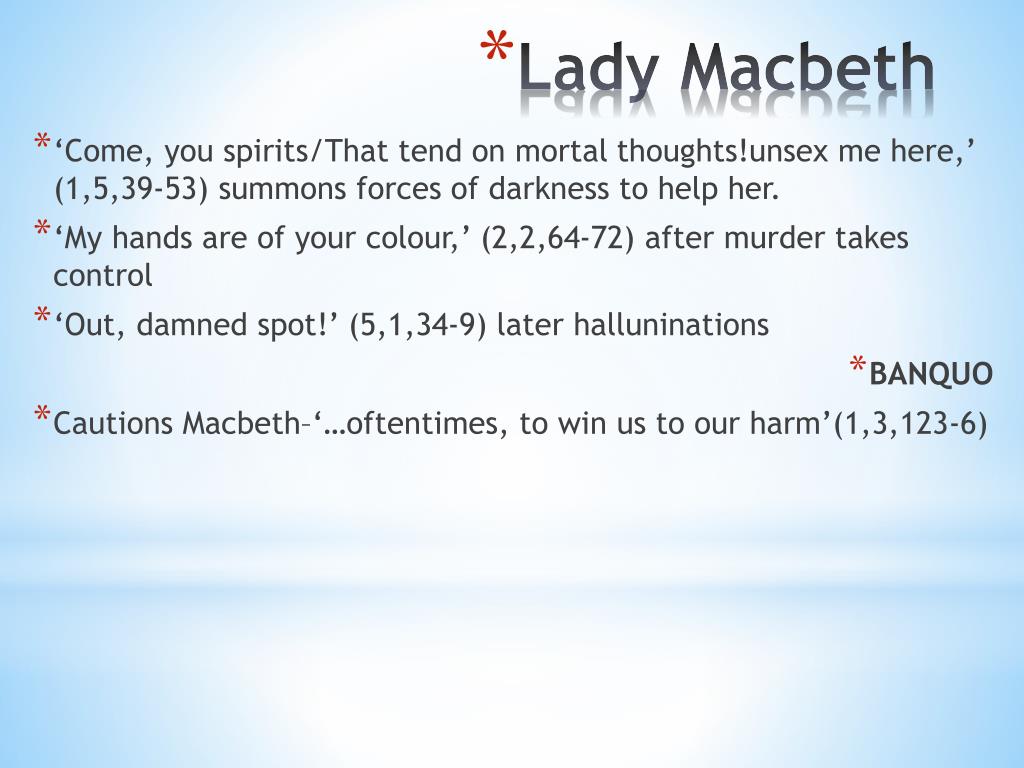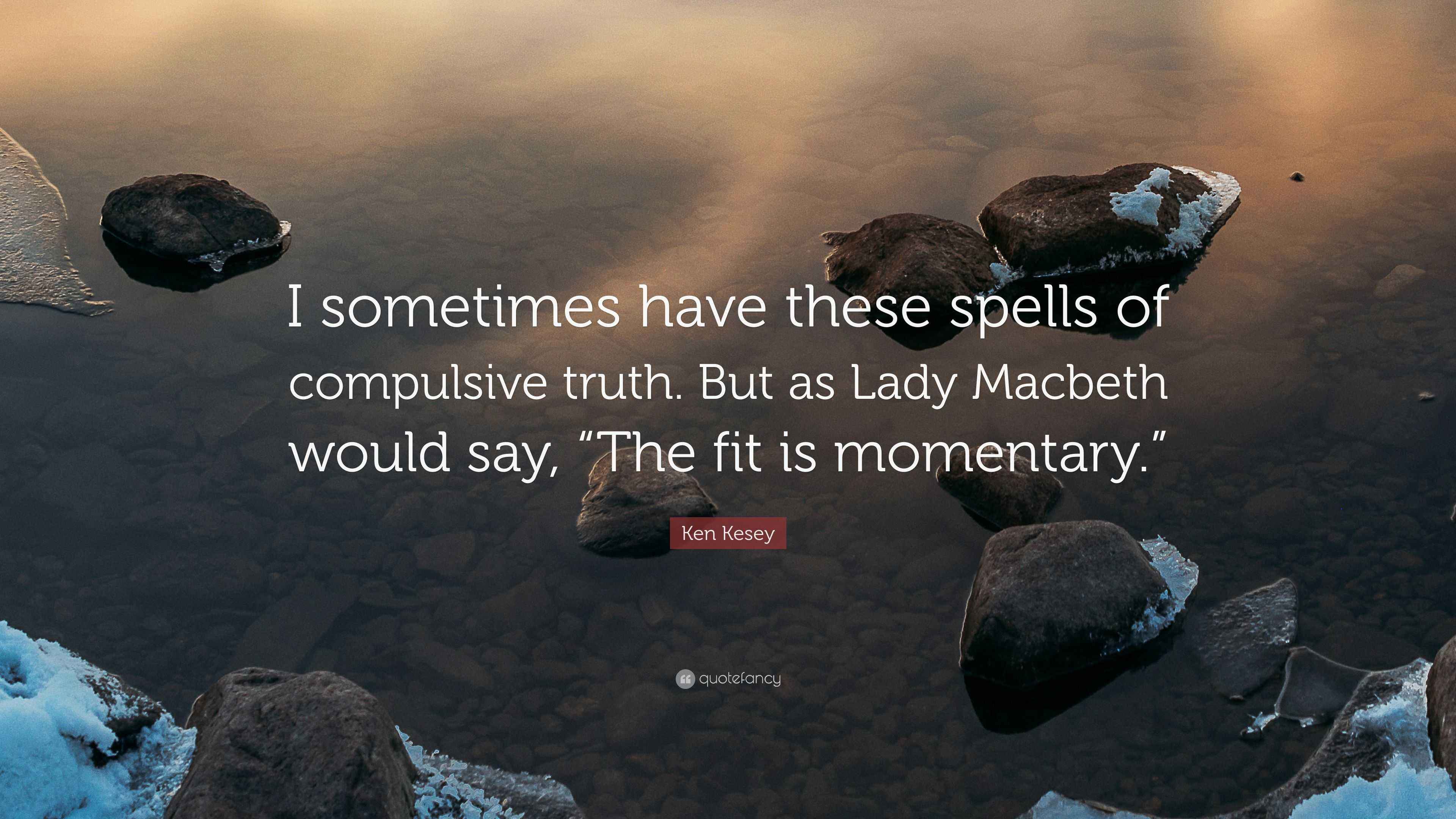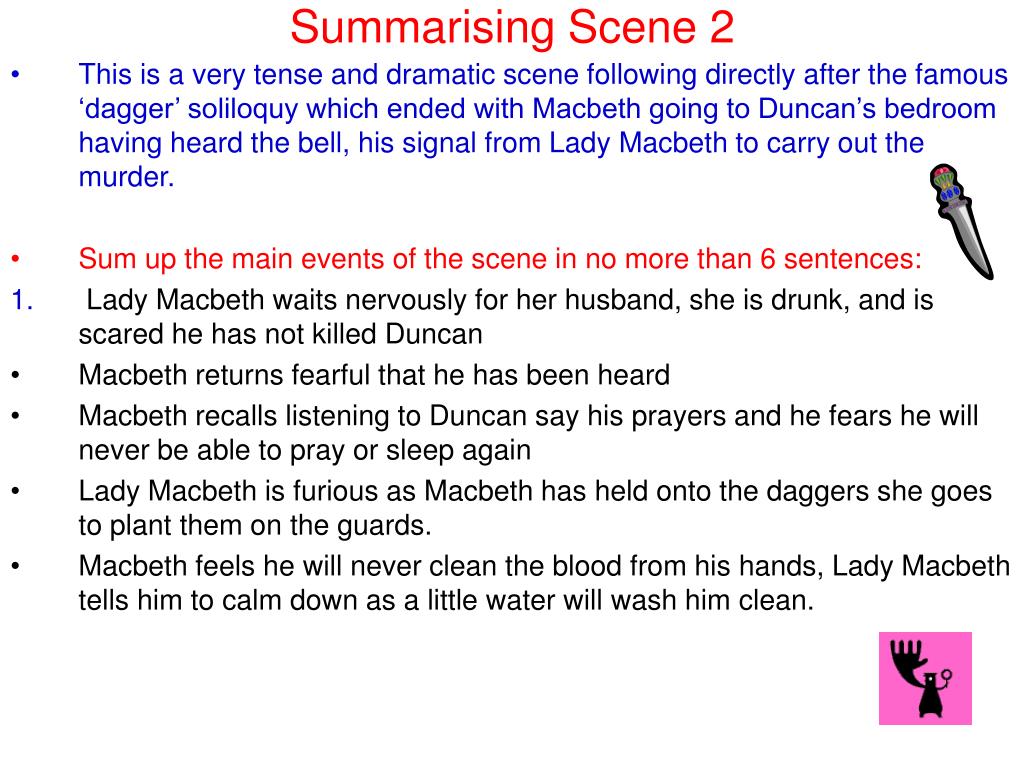

He is manly enough to be the new King, he is a warrior and a ruler of his domain, but in Lady Macbeth’s opinion he also lacks the qualities that are needed for conducting the murder. Men were thought to be ruthless killers, who could prepare a plan and proceed to it step by step.īut still, the husband of Lady Macbeth is hesitating. These qualities were considered masculine. Lady Macbeth needs to be as cold and calculating as it is possible. A woman would more likely be responsible for poisoning, adultery, treason, or even murdering someone in rage – but this is not the case. Women were seen as cunning, but weak and fragile, prone to temptation. To understand that, we should remind ourselves the image of women and femininity in the times of Shakespeare. But why Lady Macbeth asks to “unsex” her, to strip her of her physical sex? She doesn’t need power or courage, but sees her sex as the main obstacle. Gradually we come to the most important part: the subject of the plea. To pierce this protection Lady Macbeth seems to address her pleas to the servants of God’s direct opponent – Satan, transferring Satan’s rebellion against God, his vanity and desire for power to the earthly conflict between Duncan and herself. The King is protected by the divine power for his reign is blessed by the Church. This phrase shows the devotion of Lady Macbeth – she is willingly offering herself for possession just to be sure that the plan will be done.īut also we again see that she is unsure in its success. Moreover, to help in such a deed these spirits should have clearly malevolent intentions. They are clearly interested in humanity, to be precise – in the thoughts of people. They are not the ignorant spirits of nature that may be used by witches to cause rain or draught. So what spirits does Lady Macbeth call? She gives the answer herself. “Come, you spirits that tend on mortal thoughts” So she goes to the next step: if her plan can’t be approved by either God or man, she asks for help the evil spirits. Lady Macbeth understands that they are going to do something hideous from God’s and people’s points of view.

Moreover, despite being infuriated by her husband’s hesitations, she isn’t completely sure herself. It’s the point of no return that will have the horrifying consequences. Something in her says that their plan is a big mistake. The raven – the symbol of death and doom – is a metaphor of all the misfortunes that await Macbeth and his wife for what they are going to do – kill the King. Lady Macbeth herself feels the bad omens that follow the appearance of King Duncan. “The raven himself is hoarse that croaks the fatal entrance of Duncan under my battlements” Let’s follow this quote sentence by sentence. She is ready to give up her conscience, her humanity, her very soul to achieve her goal. This speech, one of the best in “Macbeth”, reflects her blinding desire to rule and determination. Unlike him, Lady Macbeth is devoted to the goal of becoming a Queen fully. She can’t count on her husband, Macbeth is not ambitious enough to overcome his caution and loyalty and isn’t ruthless enough to fulfill his plan without any moral dilemmas. This fact enrages Lady Macbeth, sending her to the brink of despair. But while reading she concludes that her husband still has hesitations about whether he should betray and kill the King. This powerful scene happens when Lady Macbeth receives a letter from her husband and reads it, learning that King Duncan will soon arrive.

Let’s start this Macbeth essay from the moment when we hear the quote and what happens before. *Service is provided by our writing partner Gradesfixer. “Unsex Me Here”” and get results within 3 hours. Order your own unique sampleon “The Analysis of The Quote It seems that Lady Macbeth asks the spirits for demonic possession, does she really wants it and why? Watch out! This sample can be used by anyone… This quote is one of the most famous in the whole play and shall sound quite strange and ominous for the modern reader. That tend on mortal thoughts, unsex me here,Īnd fill me from the crown to the toe topful The Analysis of The Quote “Unsex Me Here” in “Macbeth” The Analysis of The Quote “Unsex Me Here” in “Macbeth”.


 0 kommentar(er)
0 kommentar(er)
